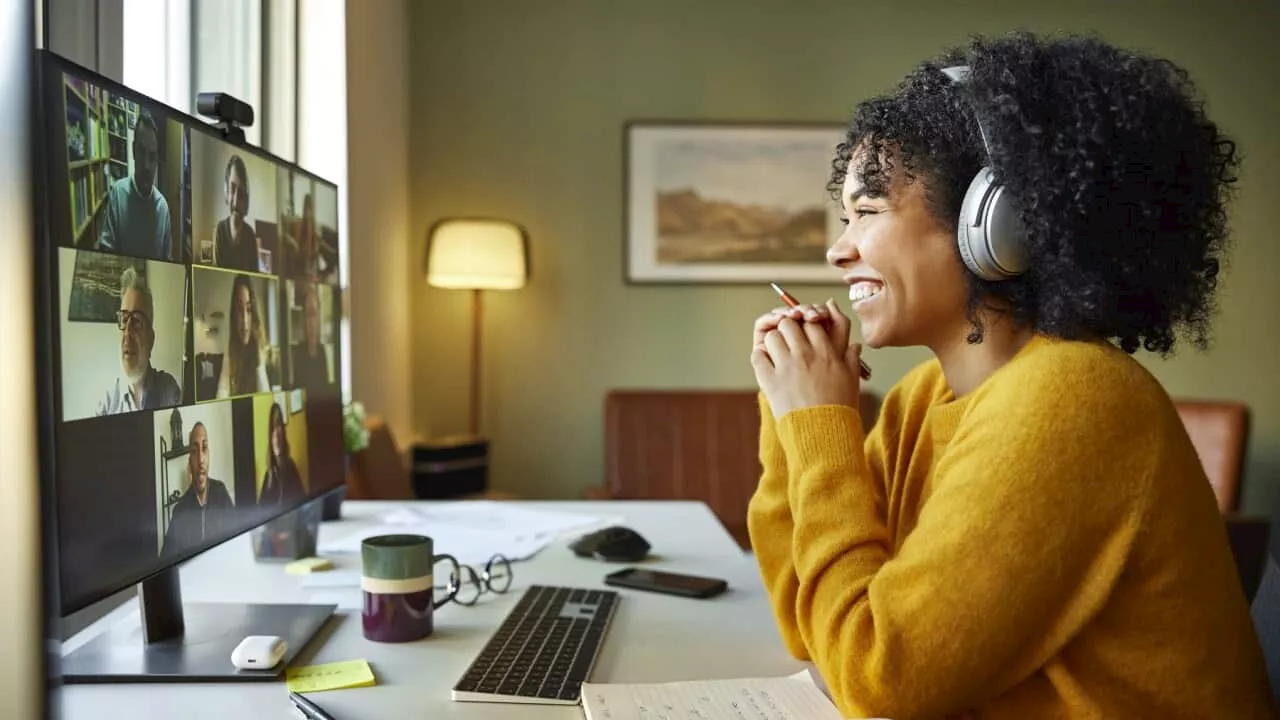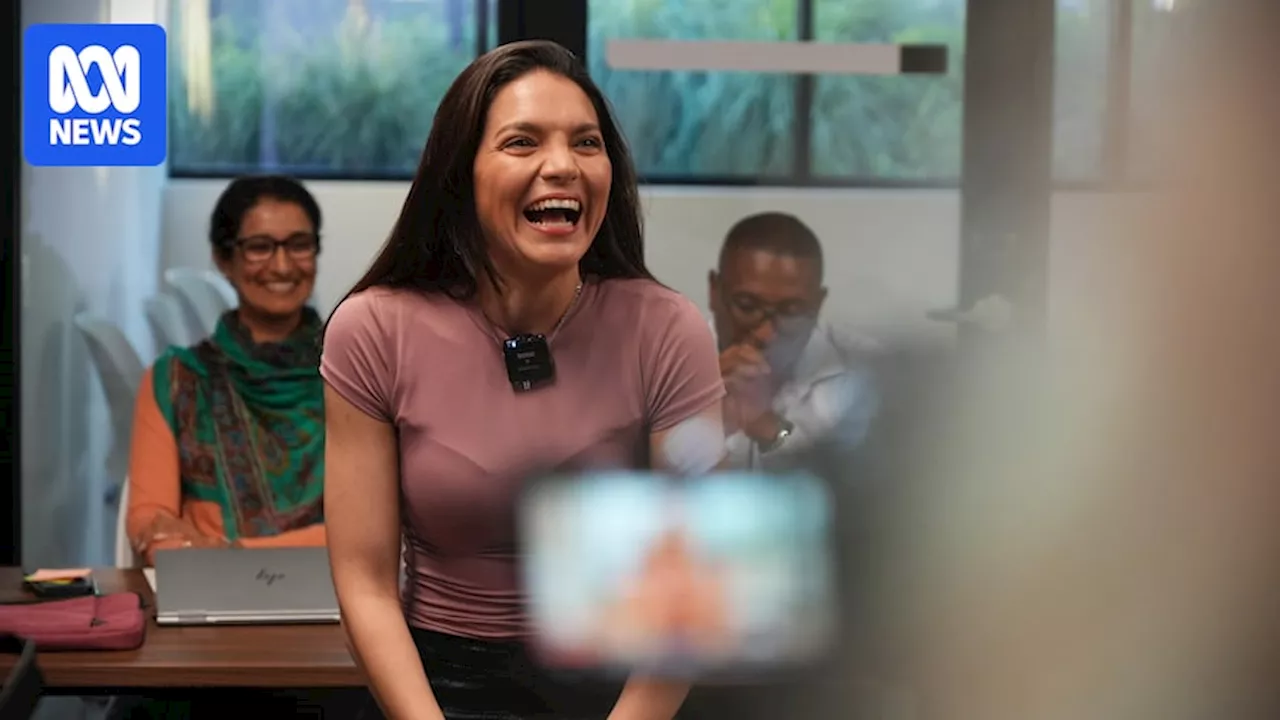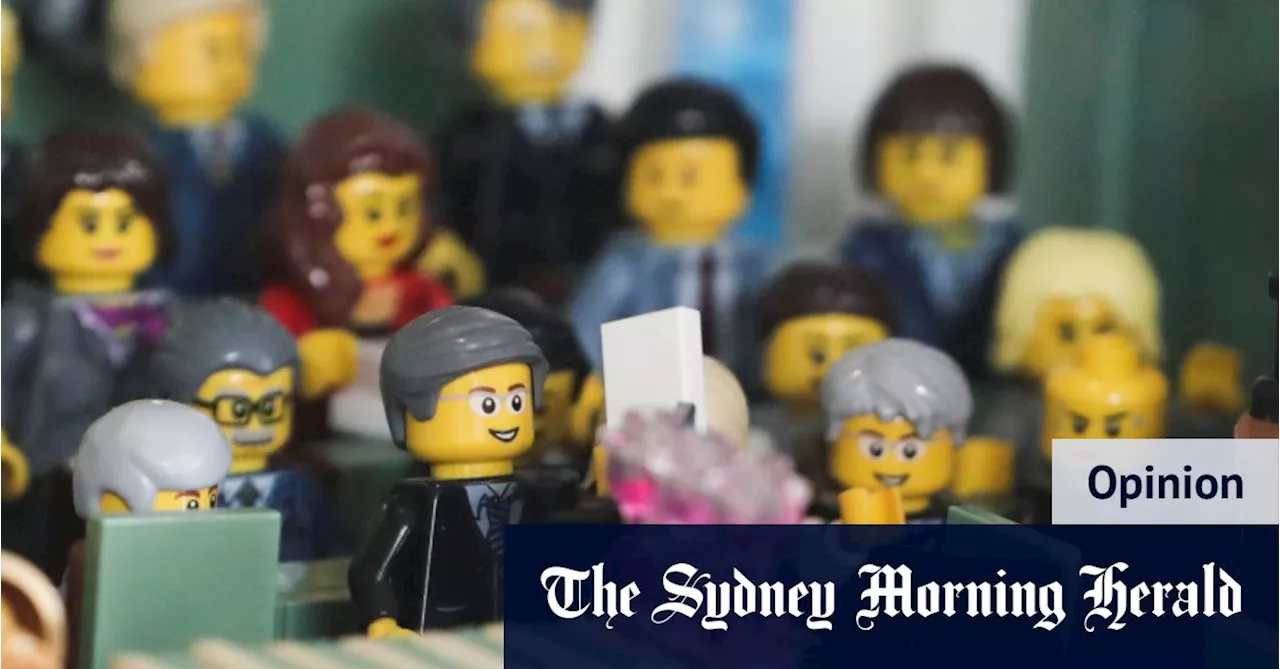This article argues that better understanding between remote and office-based workers starts with language. The author proposes a glossary of common work-from-home idioms to help bridge the communication gap and foster empathy.
Those who work from home and their office-based colleagues need to understand each other better – and that starts with language. Here’s my new corporate glossary, with Amazon, Morgan Stanley and Asda all desperately trying to stuff the human genie back into its cubicle bottle. Staff at the Office for National Statistics and the Land Registry, among others, have voted to strike to preserve their right to work from home .
As a long-time home worker , I’m keen to bridge that gap. That is because fundamentally we’re the same: humans with hopes and dreams. We should be working together in harmony, albeit apart. I don’t have many ideas on how to achieve this , but one thing that comes to mind is language. Perhaps if we spoke the same one, we would understand each other better. I’m thinking, specifically, of corporate bullshit. You know – granularity, big data, delivering shareholder value. Could our WFH experiences enrich the linguistic landscape and give the office-based an insight into our lives? We have deliverables too, and not just from Evri.
Hopefully, this will scare some culture war squirrels off the working-life feeders. No need to thank me: I’m always happy to bring in the bins.
Technology Culture WORK-FROM-HOME CORPORATE CULTURE COMMUNICATION REMOTE WORK WORKPLACE
United States Latest News, United States Headlines
Similar News:You can also read news stories similar to this one that we have collected from other news sources.
 Flexible Work Arrangements Remain in Demand as 2025 Work Year BeginsThe trend of flexible work arrangements, propelled by the COVID-19 pandemic, continues to shape workplace expectations. Experts highlight the sustained demand for flexible work and its potential benefits for both employees and employers. The text explores legal rights, employer accommodations, and the impact of flexible work on productivity, employee well-being, and gender equality.
Flexible Work Arrangements Remain in Demand as 2025 Work Year BeginsThe trend of flexible work arrangements, propelled by the COVID-19 pandemic, continues to shape workplace expectations. Experts highlight the sustained demand for flexible work and its potential benefits for both employees and employers. The text explores legal rights, employer accommodations, and the impact of flexible work on productivity, employee well-being, and gender equality.
Read more »
 Cricket: More Than Just a Game, Bridging Cultures and NationsThe India-Australia Border-Gavaskar Trophy highlights the profound cultural and diplomatic impact of cricket, showcasing its ability to connect nations.
Cricket: More Than Just a Game, Bridging Cultures and NationsThe India-Australia Border-Gavaskar Trophy highlights the profound cultural and diplomatic impact of cricket, showcasing its ability to connect nations.
Read more »
 Planning for Early Retirement: Maximizing Your Super and Bridging the GapThis article explores the steps involved in planning for early retirement. It emphasizes the importance of superannuation contributions, minimizing debt, and managing expenses to ensure financial security during the transition period before accessing retirement savings.
Planning for Early Retirement: Maximizing Your Super and Bridging the GapThis article explores the steps involved in planning for early retirement. It emphasizes the importance of superannuation contributions, minimizing debt, and managing expenses to ensure financial security during the transition period before accessing retirement savings.
Read more »
 Bridging the Gap: Program Empowers CaLD Experts to Engage with MediaA new program in Perth, Australia, aims to diversify the pool of experts journalists contact by providing training and mentorship to culturally and linguistically diverse (CaLD) individuals. The Reach Fellowship, run by author Sisonke Msimang and Curtin University's journalism coordinator Glynn Greensmith, helps CaLD professionals develop their media communication skills and connect with local news outlets.
Bridging the Gap: Program Empowers CaLD Experts to Engage with MediaA new program in Perth, Australia, aims to diversify the pool of experts journalists contact by providing training and mentorship to culturally and linguistically diverse (CaLD) individuals. The Reach Fellowship, run by author Sisonke Msimang and Curtin University's journalism coordinator Glynn Greensmith, helps CaLD professionals develop their media communication skills and connect with local news outlets.
Read more »
 Bridging the Gap: How e61 Is Bringing Economics and Policymaking TogetherThe e61 Institute is a novel think tank that aims to bridge the gap between academic research and policymaking in Australia. Founded by economist Greg Kaplan and Labor MP Andrew Charlton, e61 focuses on attracting and developing Australian economists, particularly those who have lived overseas, and pairing their expertise with a policy focus. The institute uses microdata to offer insights into key issues facing the country, such as wage growth, caregiving costs, and supermarket competition. Its work has directly influenced policy decisions and is freely available to the public, fostering greater understanding of how economics applies in the real world.
Bridging the Gap: How e61 Is Bringing Economics and Policymaking TogetherThe e61 Institute is a novel think tank that aims to bridge the gap between academic research and policymaking in Australia. Founded by economist Greg Kaplan and Labor MP Andrew Charlton, e61 focuses on attracting and developing Australian economists, particularly those who have lived overseas, and pairing their expertise with a policy focus. The institute uses microdata to offer insights into key issues facing the country, such as wage growth, caregiving costs, and supermarket competition. Its work has directly influenced policy decisions and is freely available to the public, fostering greater understanding of how economics applies in the real world.
Read more »
 e61 Institute: Bridging the Gap Between Economics and PolicyThe e61 Institute, founded by economists Andrew Charlton and Greg Kaplan, is a unique organization dedicated to bridging the gap between academic research and policymaking in Australia. Using microdata and rigorous analysis, e61 provides valuable insights into a range of critical issues facing the country.
e61 Institute: Bridging the Gap Between Economics and PolicyThe e61 Institute, founded by economists Andrew Charlton and Greg Kaplan, is a unique organization dedicated to bridging the gap between academic research and policymaking in Australia. Using microdata and rigorous analysis, e61 provides valuable insights into a range of critical issues facing the country.
Read more »
